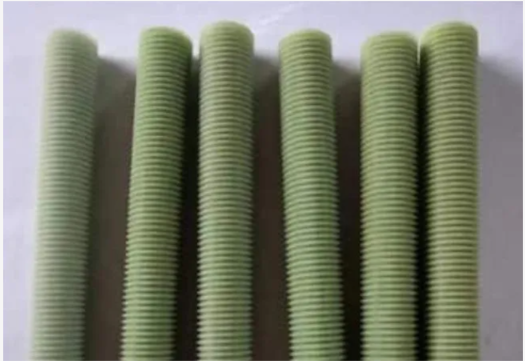FRP fasteners are specialized components made from fiber-reinforced plastic (FRP) designed to provide robust and lightweight fastening solutions in a variety of industries. These fasteners are increasingly replacing traditional metal fasteners due to their excellent strength-to-weight ratio, resistance to corrosion, and versatility in different environments. FRP fasteners are ideal for applications where metal fasteners would typically rust or degrade, especially in harsh conditions like offshore environments, chemical plants, or water treatment facilities.
Key Features of FRP Fasteners
The primary advantage of FRP fasteners lies in their inherent properties that make them stand out from conventional materials. FRP fasteners are non-corrosive, which is particularly valuable in industries dealing with moisture, chemicals, or extreme temperatures. Additionally, FRP fasteners are electrically insulating, making them ideal for electrical applications. They are also highly resistant to stress and fatigue, ensuring a longer service life compared to their metal counterparts.
Applications of FRP Fasteners in Various Industries
FRP fasteners are widely used in diverse industries due to their lightweight and durable characteristics. In the construction industry, FRP fasteners are used for structural components that require resistance to environmental factors such as moisture, saltwater, or high heat. Similarly, the automotive industry benefits from FRP fasteners in lightweight car manufacturing, where weight reduction is a priority. They are also utilized in aerospace and electronics for their insulating properties and resistance to harsh environments.
Advantages Over Traditional Metal Fasteners
Compared to traditional metal fasteners, FRP fasteners offer several distinct advantages. One of the most notable benefits is their resistance to corrosion, which ensures longevity even in highly corrosive environments. Additionally, FRP fasteners are lighter than metal alternatives, which contributes to weight savings in industries like transportation and manufacturing. These fasteners also provide excellent electrical insulation, making them ideal for sensitive electronic and electrical applications.
Challenges and Considerations in Using FRP Fasteners
While FRP fasteners have numerous benefits, there are also some challenges to consider. The primary issue is their brittleness compared to metals, which can lead to breakage or failure under extreme stress. Furthermore, FRP fasteners are often more expensive than traditional metal fasteners, which may impact cost-effectiveness in certain projects. Despite these challenges, advancements in material technology continue to improve the performance and affordability of FRP fasteners.FRP Fastener
